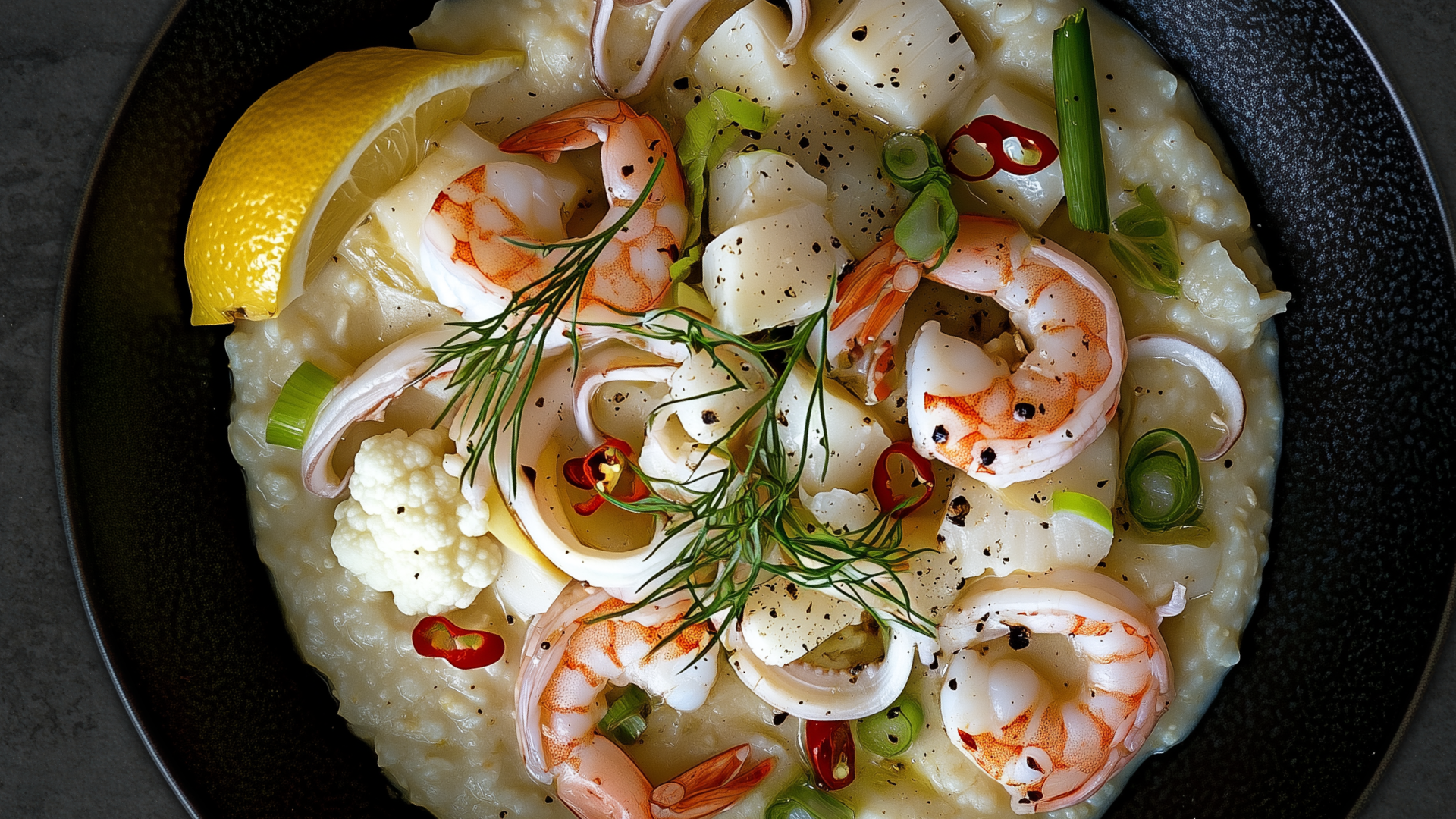The
Daily
Fix
Rest
Seafood Chowder With Cauliflower Purée
The Struggle for Media Literacy and the Consequences of Instant Access

Rest day
Seafood chowder with cauliflower puree offers a creamy, flavorful base complemented by a variety of seafood. A touch of fennel and lemon adds a subtle, fresh flavor that enhances the seafood.
Does the convenience of instant information and AI tools erode critical thinking?
Enjoy the recovery time, or make-up anything you missed from last week.
Ingredients
3 oz calamari
3 oz cod
5 oz shrimp, peeled, deveined
¼ yellow onion, sliced
1 tsp red chili peppers
1 Tbsp scallions, chopped
2 ½ Tbsp leeks, trimmed and sliced
¼ clove garlic, minced
½ cup cauliflower florets
2 Tbsp butter
4 tsp cream
1.5 cup water
½ Tbsp fennel, sliced
1 slice lemon
Salt and pepper to taste
Macronutrients
Protein: 68g
Fat: 31g
Carbs: 16g
Preparation
In a pot, melt 3 tsp of butter over medium heat. Add the sliced ¼ yellow onion, sliced leeks (2 ½ Tbsp), and sliced fennel (1 Tbsp.) Sauté for 3-4 minutes until softened.
Add the minced ¼ clove garlic and red chili peppers (1 tsp.) Cook for another minute until fragrant.
Add the cauliflower florets (½ cup) and 1 cup of water. Bring to a simmer and cook for about 10 minutes or until the cauliflower is very soft.
While the cauliflower is cooking, in a separate pan, melt the remaining 3 tsp of butter and lightly sauté the calamari (3 oz), cod (3 oz), and shrimp (5 oz) for about 2-3 minutes. Set aside.
Once the cauliflower is soft, transfer the contents of the pot to a blender. Add the cream (4 tsp) and blend until smooth to create the cauliflower puree. Return the puree to the pot and add the remaining ½ cup of water to achieve desired consistency. Bring to a gentle simmer.
Add the sautéed seafood to the pot and simmer for an additional 2-3 minutes until the seafood is fully cooked. Season with salt and pepper to taste.
Remove from heat and stir in the chopped scallions (1 Tbsp.)
Serve hot, garnished with a squeeze of lemon juice from the lemon slice.
The rise of instant information has changed the way we consume knowledge, and not always for the better. When research required library trips and cross-referencing encyclopedias, every answer was earned, deliberate, and meaningful. Today, information flows freely, but much of the effort required to engage with it has vanished. The consequence is the erosion of media literacy and critical thinking, leaving us increasingly ill-equipped to sift through the overwhelming flood of information we encounter daily.

SATURDAY 250329